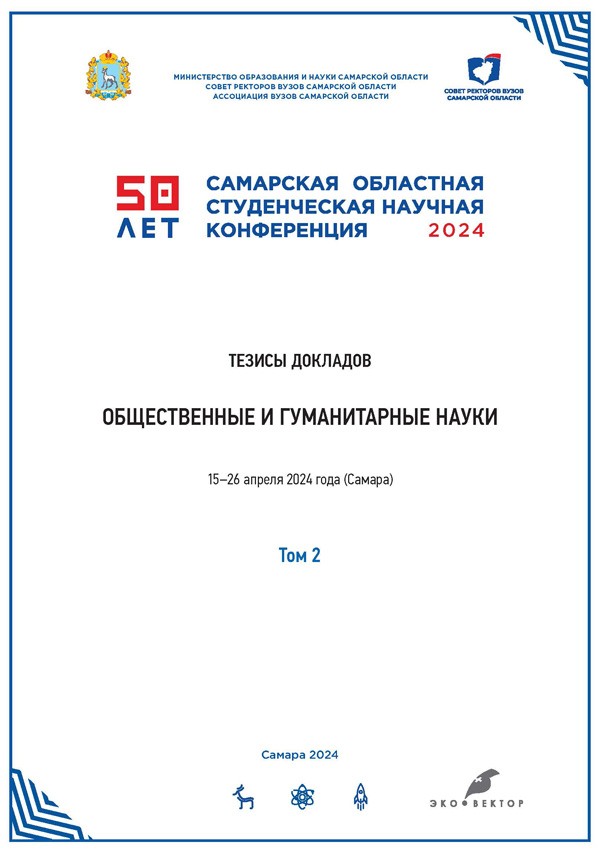Website localization strategies
- Authors: 1
-
Affiliations:
- Samara National Research University
- Issue: Vol 2 (2024)
- Pages: 182-182
- Section: ЧАСТЬ II. Иностранный язык в области профессиональной коммуникации
- URL: https://snv63.ru/osnk-sr2024/article/view/631912
- ID: 631912
Cite item
Full Text
Abstract
Background. In an increasingly globalized world where businesses rely heavily on the internet, linguistic and cultural diversity poses significant challenges. To overcome these challenges, website localization strategies have emerged as indispensable tools. This study seeks to assess the efficacy of various localization methods in improving user experience and bridging cultural divides in the online sphere.
Aim. The aim of this research is to evaluate the effectiveness of website localization strategies.
Methods. Employing a comprehensive approach, the author conducted a survey among 85 students enrolled at the Institute of Informatics and Cybernetics at Samara University. This survey aimed to gauge attitudes towards localization and discern its perceived significance. Additionally, the author analyzed the hurdles faced by developers when localizing websites. Furthermore, a comparative analysis of Burger King’s websites across Russia, the United Kingdom, and Japan was conducted to observe localization strategies and disparities in design and content.
Results. The survey findings revealed that approximately 71 % of respondents frequently encounter websites in foreign languages, with 42 % encountering them quite often or constantly. Among the respondents, 40.2 % identified the interface as the most crucial aspect of localization, while 37.1 % prioritized content, and 15.5 % underscored the necessity of native language support for comfortable website usage. Moreover, 85 % of participants believed that localized websites foster trust in a company, while 92 % opined that they facilitate a better understanding of products. More than half of those engaged in web development expressed intentions to integrate localization into their work. The comparison of Burger King’s websites across different countries highlighted notable differences in localization strategies, encompassing design, content, and features.
Conclusion. Website localization emerges as a vital strategy for engaging diverse audiences, although it presents its fair share of challenges. By discerning user preferences and implementing effective strategies, we can cultivate more inclusive and accessible web experiences for users worldwide.
Full Text
Background. In an increasingly globalized world where businesses rely heavily on the internet, linguistic and cultural diversity poses significant challenges. To overcome these challenges, website localization strategies have emerged as indispensable tools. This study seeks to assess the efficacy of various localization methods in improving user experience and bridging cultural divides in the online sphere.
Aim. The aim of this research is to evaluate the effectiveness of website localization strategies.
Methods. Employing a comprehensive approach, the author conducted a survey among 85 students enrolled at the Institute of Informatics and Cybernetics at Samara University. This survey aimed to gauge attitudes towards localization and discern its perceived significance. Additionally, the author analyzed the hurdles faced by developers when localizing websites. Furthermore, a comparative analysis of Burger King’s websites across Russia, the United Kingdom, and Japan was conducted to observe localization strategies and disparities in design and content.
Results. The survey findings revealed that approximately 71 % of respondents frequently encounter websites in foreign languages, with 42 % encountering them quite often or constantly. Among the respondents, 40.2 % identified the interface as the most crucial aspect of localization, while 37.1 % prioritized content, and 15.5 % underscored the necessity of native language support for comfortable website usage. Moreover, 85 % of participants believed that localized websites foster trust in a company, while 92 % opined that they facilitate a better understanding of products. More than half of those engaged in web development expressed intentions to integrate localization into their work. The comparison of Burger King’s websites across different countries highlighted notable differences in localization strategies, encompassing design, content, and features.
Conclusion. Website localization emerges as a vital strategy for engaging diverse audiences, although it presents its fair share of challenges. By discerning user preferences and implementing effective strategies, we can cultivate more inclusive and accessible web experiences for users worldwide.
About the authors
Samara National Research University
Author for correspondence.
Email: allina.dobina@yandex.ru
student, Group 6204, Institute of IT and Cybernetics
Russian Federation, SamaraSupplementary files









